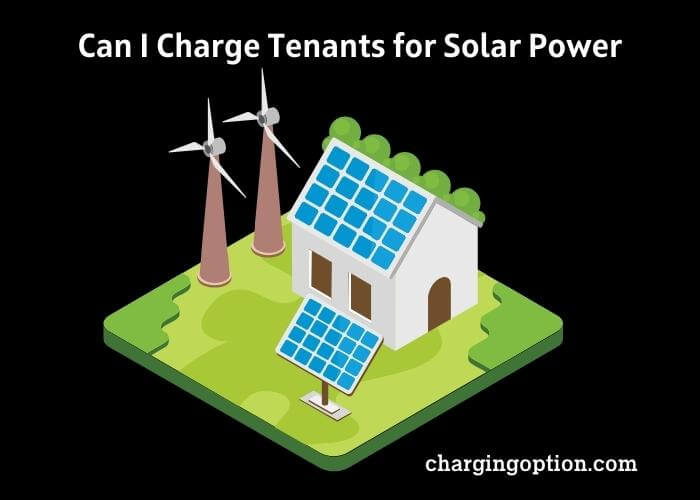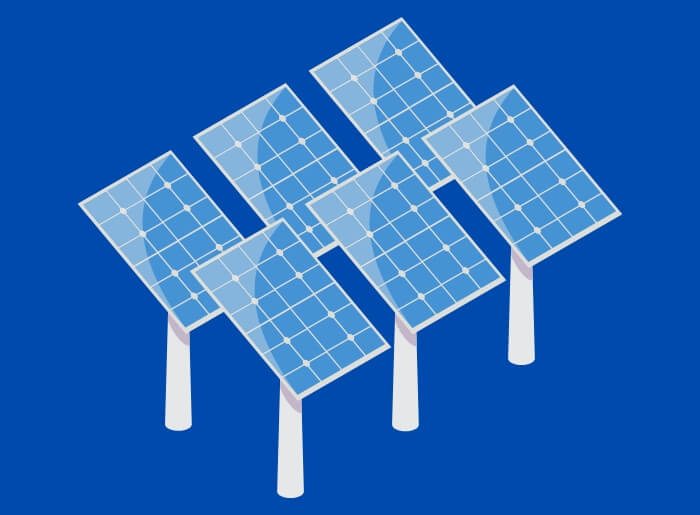Can you charge tenants for solar power? It’s a question that many landlords and property managers have been asking lately as solar power becomes more popular and accessible. Solar energy is a clean, renewable energy source that can help reduce electricity costs and carbon footprint. Is it legal and ethical to charge tenants for solar power? Let’s dive into this topic to find out.

The answer is yes, landlords can charge tenants for solar power, but it depends on various factors, including state laws, the rental agreement, and the solar panel system’s ownership. In some states, landlords can charge tenants for solar power as an additional utility fee; in others, landlords may be required to provide solar energy for free. If the landlord owns the solar panel system, they can charge tenants for using solar power.
So, if you’re a landlord or a property manager interested in using solar power for your rental properties, stay tuned! We have covered all the essential information you need to know about charging tenants for solar energy.
Solar Power in Rental Properties
Solar power is becoming an increasingly popular source of energy in rental properties. It offers numerous benefits to landlords, tenants, and the environment. Before deciding to install solar panels in rental properties, it is crucial to understand the following:
Benefits of Installing Solar Power in Rental Properties
Solar power provides several benefits, including:
- Reducing energy costs for landlords and tenants
- Increasing the value of the property
- Providing a reliable source of energy
- Contributing to a cleaner environment
Types of Solar Panels Suitable for Rental Properties
Choosing the right panels when installing solar panels in rental properties is essential. The types of solar panels suitable for rental properties include:
- Monocrystalline solar panels
- Polycrystalline solar panels
- Thin-film solar panels
Factors to Consider Before Installing Solar Panels in Rental Properties
Before installing solar panels in rental properties, landlords should consider the following factors:
- Available space for installation
- The amount of energy required by the property
- The cost of installation and maintenance
- The duration of the tenancy agreement
Landlords and property owners must understand the benefits, types, and factors to consider when installing solar panels in rental properties. This will ensure that solar power installation is done correctly and effectively.
The legality of Charging Tenants for Solar Power
The legality of charging tenants for solar power varies depending on state and local laws. In some states, landlords can charge tenants for solar power; in others, they are not.
Landlords must follow certain regulations in states where it is legal to charge tenants for solar power. For example, they must install a separate meter to measure the amount of solar power the tenant uses. Landlords must provide tenants with a detailed breakdown of the solar power charges on their monthly utility bills.
Landlords can install solar panels on their rental properties in states where it is not legal to charge tenants for solar power. They cannot charge their tenants for the power generated by the solar panels.
Can Landlords Charge Tenants for Solar Power?
Landlords may charge tenants for solar power usage to cover the costs of installing and maintaining solar panels. There are several legal considerations to keep in mind when it comes to charging tenants for solar power.

Explanation of Solar Power Billing
Solar power billing measures the amount of energy produced by solar panels and allocates costs to tenants based on their usage. Landlords can charge tenants for solar power based on a metered or non-metered system.
Legal Considerations in Charging Tenants for Solar Power
Before charging tenants for solar power, landlords must ensure the lease agreement allows this. They must comply with any local or state laws regulating the billing and distribution of energy.
Tenant Rights when it Comes to Solar Power Billing
Tenants have the right to understand how solar power billing works and receive clear billing information. They also have the right to dispute any inaccuracies in their billing.
While landlords can charge tenants for solar power usage, they must ensure that it is legal and compliant with local and state laws. They must also provide clear and accurate billing information to tenants.
Steps to Charge Tenants for Solar Power
If landlords decide to charge tenants for solar power, they must follow certain guidelines to ensure the billing process is fair and transparent. The following are the steps landlords should take when charging tenants for solar power:
Step 1: Guidelines for Charging Tenants for Solar Power
Landlords should have clear guidelines in place for charging tenants for solar power. These guidelines should be included in the lease agreement and provide tenants with information on how the billing process works.
Step 2: Calculating the Cost of Solar Power for Tenants
To calculate the cost of solar power for tenants, landlords must determine the amount of energy produced by the solar panels and the cost of installing and maintaining the system. They can then divide the total cost by the number of tenants in the property to determine the individual cost per tenant.
Step 3: Providing Tenants with Clear Billing Information
Landlords must provide tenants with clear and accurate billing information. This includes providing tenants with regular bills showing the energy used, the cost per unit, and any additional charges or fees.
Landlords must follow specific steps when charging tenants for solar power. This includes having clear guidelines, calculating the cost of solar energy for tenants, and providing them with clear billing information. By following these steps, landlords can ensure the billing process is fair and transparent for all tenants.
Common Challenges with Charging Tenants for Solar Power
Charging tenants for solar power can present several challenges for landlords. The following table outlines some of the common challenges landlords may face and how to address them:
| Challenge | Solution |
| Legal compliance | Landlords must comply with local and state laws regulating energy billing and distribution. |
| Fair distribution of costs | Landlords must ensure that the cost of solar power is distributed fairly among tenants. This may involve calculating the energy each tenant uses and charging them accordingly. |
| Tenant disputes | Tenants may dispute their billing if they believe it needs to be more accurate or fair. Landlords must have a transparent dispute resolution process to handle such situations. |
| Maintenance and repairs | Landlords are responsible for maintaining and repairing the solar power system. They must ensure that they have the necessary resources and expertise to do so. |
| Upfront costs | Installing a solar power system can be expensive, and landlords may need to bear the upfront costs before charging tenants for usage. Landlords must have a plan in place to recover these costs over time. |
Landlords may face several challenges when charging tenants for solar power, including legal compliance, fair distribution of costs, tenant disputes, maintenance and repairs, and upfront costs. With these challenges and having the plan to address them, landlords can successfully charge tenants for solar power and reap the benefits of this renewable energy source.
Alternatives to Charging Tenants for Solar Power
If charging tenants for solar power is not legal or feasible, there are several alternatives that landlords can consider. For example, landlords can install solar panels and use the energy generated for common power areas of the rental property, such as hallways and laundry rooms.
Another alternative is to offer tenants the option to pay a slightly higher rent in exchange for access to solar power. This approach allows landlords to recoup the cost of installing solar panels without violating laws or deterring potential renters.
Frequently Asked Questions
Can Landlords Install Solar Panels on Their Rental Properties?
Yes, landlords can install solar panels on their rental properties. They must follow state and local regulations.
Is It Legal for Landlords to Charge Tenants for Solar Power?
The legality of charging tenants for solar power varies depending on state and local laws.
How Much Does It Cost to Install Solar Panels on a Rental Property?
The cost of installing solar panels on a rental property varies depending on several factors, including the size of the property, the number of solar panels required, and the labor cost.
Can I Recoup the Cost of Installing Solar Panels by Charging Tenants for Solar Power?
It depends on the installation cost, the electricity generated, and the rental market in your area. In some cases, it might not be feasible to recoup the cost by charging tenants.
What Are the Benefits of Installing Solar Panels on a Rental Property?
Installing solar panels on a rental property can reduce the landlord’s carbon footprint, lower utility bills, and increase the property’s value.
Wrap Up
Landlords can install solar panels on their rental properties and charge tenants for solar power in states where it is legal and feasible. Landlords must follow state and local regulations and consider the installation cost and the rental market in their area.
If charging tenants for solar power is not legal or feasible, landlords can consider alternatives such as using solar energy in common power areas or offering tenants the option to pay a slightly higher rent for access to solar power.
Installing solar panels on a rental property can provide numerous benefits to landlords and tenants, including reduced carbon footprint, lower utility bills, and increased property value.
If you want to know can I take my charger on a plane? Here is the reply.
Relevant Resources:
